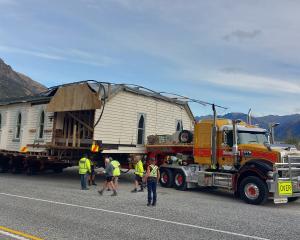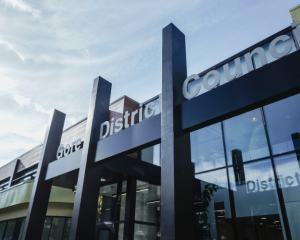Tourism Dunedin chief executive officer Hamish Saxton estimated the teams could bring tens of millions of dollars into the local economy - not just during the World Cup, but also for long afterwards.
"The legacy the games will bring will be enduring.
"What it means is there are going to be 2500 media representatives in New Zealand for the World Cup.
The media profiling of the area before the games here will be gold - you couldn't buy that type of marketing."
Destination Queenstown marketing general manager Graham Budd said hosting the English for three nights, the Irish for six and a yet-to-be-decided European play-off winner for four nights, along with their supporters, would mean a "huge boost" to tourism numbers, plus downstream benefits as visiting media fed stories home.
"The teams will attract supporters and rugby fans from their own and other countries, which will fill our beds, restaurants, cafes and activities during a shoulder season."
Former All Black and announcer Grahame Thorne said the announcement was good news for the South.
"The three that you want are England, Ireland and Scotland because they [their fans] are fanatics of the game and they spend a lot of money. They'll be great for the local economy."
Other teams to be hosted in the region will be Italy in Dunedin, Argentina in Invercargill, a yet-to-be-named team from Europe, and several play-off winning teams in Dunedin, Queenstown and Invercargill.
Ireland will be based in Dunedin for seven nights, Scotland five nights and England and Italy for the two nights before their matches.
The winner of Europe 1 will spend 11 nights in Dunedin and the play-off winner eight nights.
Rugby NZ 2011 chief executive Martin Snedden said 16 North Island centres and seven in the South Island would host at least one team during the tournament.
The teams would move around different centres during the group phases as they had indicated they did not want to be based permanently in one place.
However, some would spend a substantial number of days in one spot, he said.
The team-hosting announce- ments had been catalysts for councils to begin improving sports facilities and to make sure they capitalised on the exposure and opportunities for their regions.
Mr Saxton said it was important for the southern region's hospitality and tourism industries to do the same.
"We want people from the other side of the world to say, `When you go to New Zealand, you've got to go south, because they know how to treat visitors'."
Scotland's attack coach, Gregor Townsend, said he was delighted the team was to play in Dunedin - a city which had important historical links to Scotland, and Edinburgh in particular.
He was also excited Scotland would play in the Forsyth Barr Stadium's inaugural match.
"We will be maximising our time when in Dunedin to ensure that we engage with the public as much as possible and recognise what strong support we have.
"Clearly, we hope people from Dunedin will follow us on our journey through the tournament and not just in Dunedin."
Dunedin deputy mayor Syd Brown said the announcement confirmed Dunedin's reputation as New Zealand's rugby city.
"That the whole of Dunedin gets in behind rugby tests staged in the city has not gone unnoticed.
We have a reputation for being generous hosts, for selling out our stadium - which on this occasion will feature our new covered stadium, the first of its kind in New Zealand - and for our logistical capability in hosting these major events.
"We look forward to welcoming these teams and all their supporters."
Queenstown businessman Sir Eion Edgar said he was "very disappointed" with "how little" involvement the resort would have with the cup.
"When you consider this is the premier resort in New Zealand and the number of days that any team is coming here, I think it's disappointing."
Sir Eion said the quality of Queenstown's facilities should have meant teams were based in the resort for longer, travelling to play their matches and then returning.
Having teams in the resort for more than three or four days would have guaranteed their supporters would also visit the region.
"We've got to be thankful for small mercies, but given the quality of what we can offer here . . . to end up with 13 days isn't exactly a ringing endorsement of our tourism."
The South
Teams to be hosted in the South and their training grounds. -
DUNEDIN
Scotland (Sept 11-15) Carisbrook/University Oval.
England (Sept 22-24) Carisbrook/University Oval.
Ireland (Sept 26-Oct 2) Carisbrook/University Oval.
Italy (Sept 30-Oct 2) Caledonian Ground.
Europe 1 (Sept 5-15) Caledonian Ground.
Play-off winner (Sept 18-25) Caledonian Ground.
QUEENSTOWN
Ireland (Sept 2-7) Queenstown Events Centre.
England (Sept 19-21) Queenstown Events Centre.
Play-off winner (Sept 11-14) Queenstown Events Centre.
INVERCARGILL
Scotland (Sept 7-10) Les George Oval.
Argentina (Sept 15-17) Southland Stadium.
Play-off winner (Sept 7-10) Southland Boys High School.
Play-off winner (Sept 15-17) Southland Boys High School.











